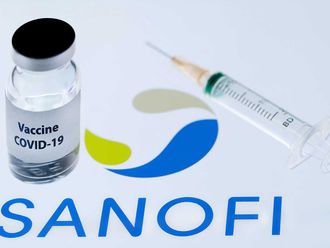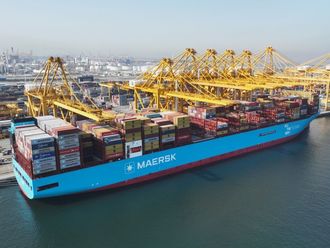London: Emerging market bonds were facing conflicting signals yesterday as escalating violence across North Africa and beyond lent themselves to risk aversion plays although in truth non-Mena sovereigns continue to resist contagion from the troubled region.
In fact the latest mark-up in oil prices provides obvious comfort to leading energy exporters like Russia, Kazakhstan and Venezuela while European equities were holding up well.
With traditional Monday lethargy exacerbated by the US Presidents' Day holiday activity, trading was likely to be subdued over the session. Price action was expected to be choppy given low volumes and the potential for negative headlines out of Mena.
In the primary market Ukraine's 100 per cent state-owned savings bank, Oschadbank, is due to release price talk early this week for a debut Reg S only five-year bond with Credit Suisse and Morgan Stanley.
South-Africa based retailer Edcon is due to launch a dual tranche Eurobond transaction this week. The company has been marketing a two-part €400 million- (Dh2.01 billion) equivalent senior secured seven-year non-call three note, denominated in dollars and euros, which will be used to refinance existing debt and hedging obligations. Deutsche Bank and Goldman Sachs are the leads.
Having finally agreed the structures for its debut Euro-rouble transaction the Russian Federation may be ready to open a book as early as this week for the groundbreaking offering.
Other potential sovereign issuers this week include Turkey while Croatia's next dollar bond is slated for March.
Sovereign debt
Meanwhile, emerging-market sovereign debt is diverging from US corporate credit by the most in almost two years as countries from Vietnam to Peru grapple with faster inflation that may hinder growth while bondholder confidence in companies from the world's largest economy grows.
Credit-default swaps tied to Asian and Latin American government debt and those linked to high-yield company bonds in US and Canada have decoupled to the widest since March 2009. Developing countries' debt in dollars has lost 0.22 per cent this month, while US corporate notes have gained 0.09 per cent, according to Barclays Capital index data.
Loomis Sayles, which oversees $152 billion (Dh558.2 billion), is backing US corporate bonds as 72 per cent of companies in the Standard & Poor's 500 that have reported earnings beat analysts' estimates. While the Federal Reserve is stoking US growth with almost-zero short-term interest rates, record food prices in emerging markets are prompting Loomis to wager that efforts to combat inflation will erode creditworthiness.
"As food price inflation continues to rise, we get more and more nervous," said Kevin Kearns, a money manager who helps oversee Boston-based Loomis's Multi-Asset Real Return Fund and Absolute Strategies Fund.












